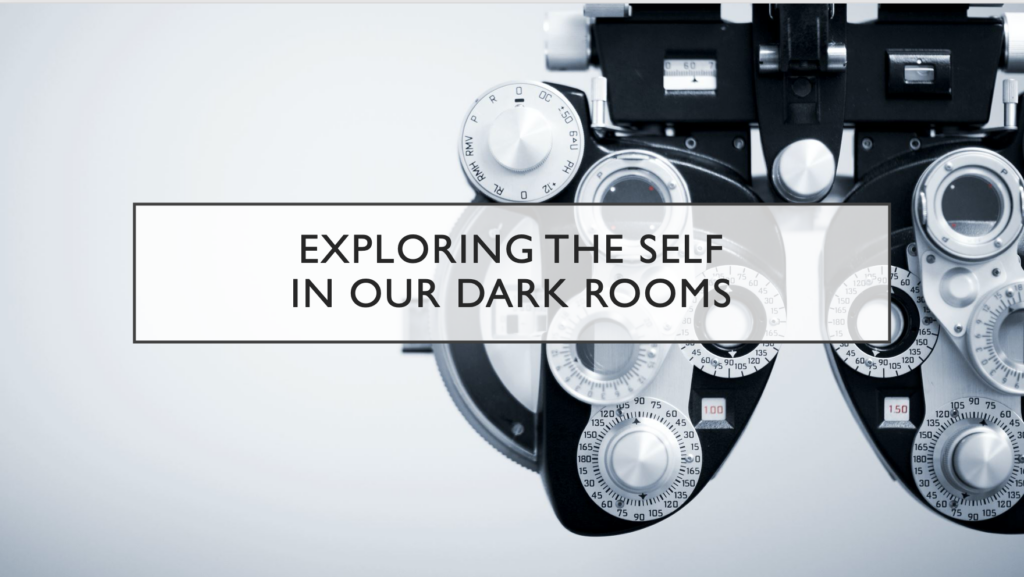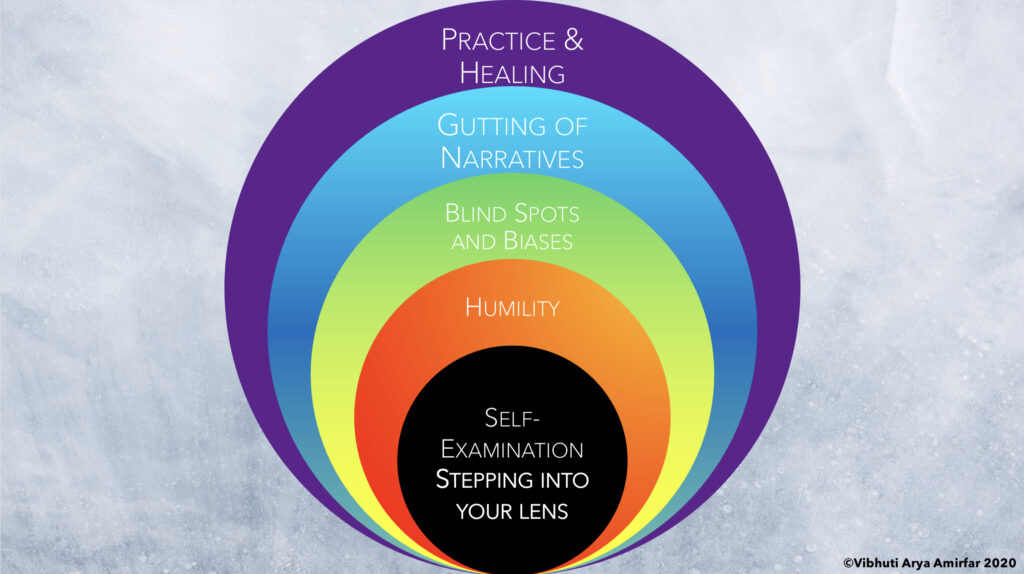We are operating in the very structures we are trying to dismantle: how do we do that? Let’s talk.

Rooted in curating brave spaces, I developed the Dark Room Methodology to guide individuals and systems towards self-examination and understand the role of structural racism. This iterative process allows us to tap into our humility and compassion so we can collectively dismantle obsolete structures, policies, and processes, and pave way for reform towards an equitable future. Humility and compassion are at the core of this approach. When we do the inner work to understand how we have been socialized, appreciate our blemishes and strengths, we are then better equipped to take this journey, with humility, towards practice and healing. Transformation is about growth and evolution. We can use the fire and emotions within for alchemy and transformation while practicing self-preservation so this journey does not consume us.

Glossary of terms
Racial Literacy: Coined by scholar and artist France Winddance Twine, referring to the knowledge and strategies taught to Black children as protection from anti-Black racism. These include understanding how to identify anti-Black racism, exposure to discourse that counters racism, and exposure to resources that increase connections to Black diaspora (in Africa, the Caribbean, and the United States).
Structural/Systemic Racism: A system of public policies, institutional practices, cultural representation, and other norms which work together to reinforce inequities between racial groups. Structural racism is not something that a few people or institutions choose to practice, rather it is a feature of the social, economic, and political systems in which we all exist. (Source: Aspen Institute, “11 Terms You Should Know Better,” 11 July 2016.)
Institutional Racism: Those policies and practices within institutions that, “intentionally or not, produce outcomes that chronically favor, or put a racial group at a disadvantage.” (Source: Aspen Institute, “11 Terms You Should Know Better,” 11 July 2016.)
Individual Racism: Interpersonal expressions of or actions intended to preserve racial prejudice or white supremacy.
Implicit Bias: “The attitudes or stereotypes that affect our understanding, actions, and decisions in an unconscious manner.” These are pervasive, malleable, and generally favor the racial group to which one belongs. They are not often in alignment with a person’s values or beliefs. (Source: Ohio State University Kirwan Institute for the Study of Race and Ethnicity, “Understanding Implicit Bias.”)
White Privilege: Historical and contemporary advantages in access to quality education, decent jobs and liveable wages, homeownership, retirement benefits, wealth, and more afforded to white people, the combination of which puts white people at an advantage, in the way that racism puts people of color at a disadvantage. (Source: Peggy Macintosh, “Unpacking the Invisible Knapsack.” excerpted from Working Paper #189 White Privilege and Male Privilege a Personal Account of Coming to See Correspondences through Work in Women’s Studies. Wellesley, MA: Wellesley College Center for the Study of Women, 1989.)
Allyship: A continuous process of taking action that supports and advances the goal of racial equity and the liberation of all people.
Representation: The presence of people from all portions of a society’s demographic makeup in all levels, especially powerful and visible positions, of an organization’s hierarchy.
Diversity: The presence of people from various backgrounds and races within an organization, as a step toward valuing people from all identity groups, but falls short of taking into account the disparities in resource distribution and interpersonal harm that exist due to structural racism, and which prevent marginalized identity groups from experiencing equity and liberation.
Equity: Distribution of society’s benefits and burgers are not determined by race, requiring that attention is paid not just to individual-level discrimination, but to overall social outcomes. (Source: Aspen Institute, “11 Terms You Should Know Better,” 11 July 2016.)
Liberation: The complete and unequivocal freedom from all forms of coercion, suppression, oppression, and discrimination for all people. A reality that requires the establishment of new social, economic, and political systems so that those in positions of societal power may no longer rely on the subjugation of other people in order to maintain their lifestyle.
